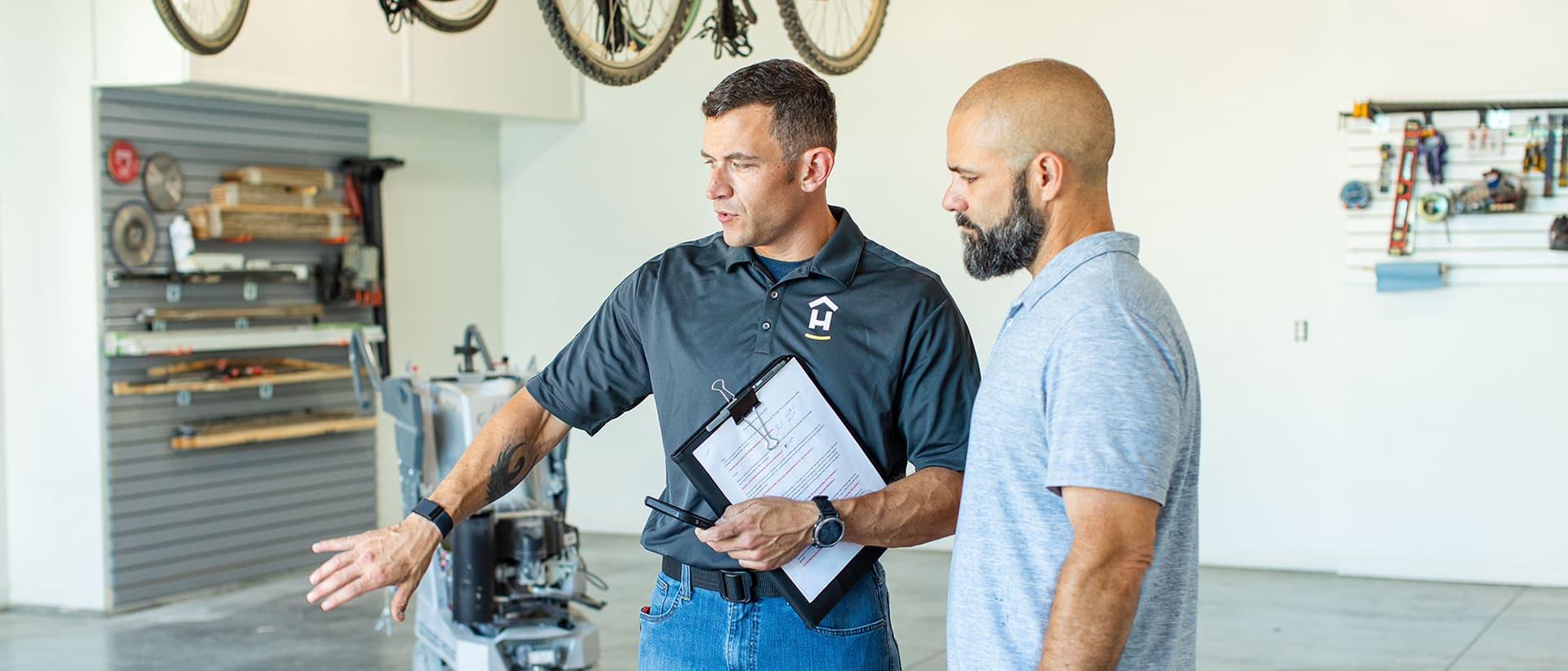Let’s examine the cost of garage floor coating.
Much like walking into a furniture store and asking, “How much do chairs cost?” or the grocery store and asking, “How much is food?”, the cost of garage flooring will depend on the details.
Here are the four details that matter most:
Garage floor coating cost options to consider:
Least Expensive:
DIY Coatings From a Big-Box Store
- Almost always epoxy-based.
- Epoxies are made up of larger molecules that don’t easily penetrate concrete.
- Epoxies won’t stick to the floor long-term.
Still Pretty Cheap:
Professional Epoxy
- Epoxies are made up of larger molecules that don’t easily penetrate concrete.
- Epoxies won’t stick to the floor long-term.
- Won’t be able to have a strong bond, so as your concrete settles, it will crack.
- Won’t stand up to the test of time — will yellow and fade.
- Easier to install than other options.
More Expensive
Polyurea
- Very thick and fast-hardening, reducing the bond with the concrete below.
- Very flexible when new.
- Highly susceptible to UV damage. Becomes brittle when exposed to UV over time.
- Professional installation is required.
Also More Expensive:
Blends
- Some companies use the best product — polyaspartic — for the top coat only to save money. They still use epoxy or polyurea for the base coat.
- Epoxy base coat with polyaspartic on top: This adds flexibility to the top layer, but the adhesion issues epoxies have will still be present.
- Polyurea base coat with polyaspartic on top: While the polyaspartic top coat is UV-resistant, it still lets UV radiation through to the non-resistant polyurea layer, so it will degrade over time. Polyurea coatings also have trouble adhering to the concrete surface, so applying a polyaspartic top coat does nothing to help that.
Polyaspartic
- Small molecule with excellent surface penetration and adhesion.
- Moderately flexible, resistant to cracking.
- 100% UV-resistant (unless blended with common polyurea — check materials data sheet for 100% aliphatic composition).
- Professional installation is required.
“Can you break that down for me?”
| DIY Big Box Store Product | Professional Epoxy | Epoxy / Polyaspartic Blend | Polyurea | Polyurea / Polyaspartic Blend | Polyaspartic by Hello Garage | |
|---|---|---|---|---|---|---|
| Cost | ||||||
| Stickiness | Terrible | Bad | Bad | Better | Better | Best |
| Flexibility | None | None | Good | Excellent | Excellent | Best |
| UV Resistance | None | None | Top coat only | None | Top coat only | Best |
| Install Expertise | Are you an expert? | Compare Warranties | Compare Warranties | Compare Warranties | Compare Warranties | Backed by industry leading warranty |
Other Specifics that Affect Your Price:
“OK, but I want a specific price for my garage.”
Great! That’s what your very own Garage Guru can get for you. Click below or give us a shout at 1.888.59.GARAGE to schedule a free quote. You’ll get an exact price, and we promise to make it fun!



